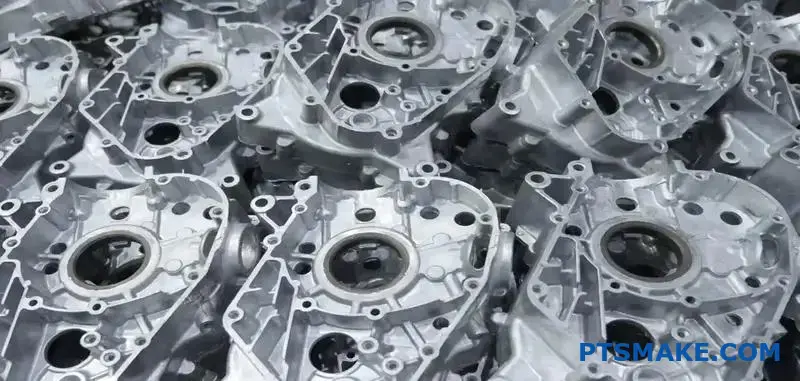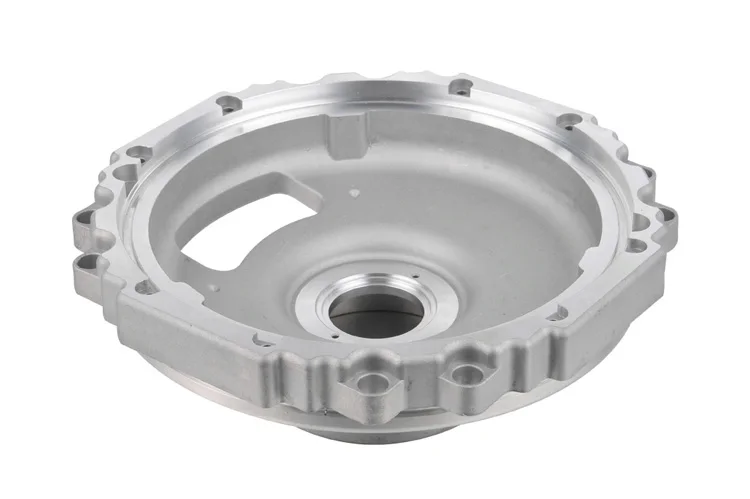How Light Weight Aluminum Foundries Contribute to Numerous Industries: A Detailed Introduction
Aluminum factories work as necessary vendors across multiple fields, including automobile, aerospace, construction, and electronic devices. They produce elements that are not just light-weight but likewise sturdy, enhancing the efficiency of different products. With advanced spreading strategies and a dedication to sustainability, these shops are adapting to satisfy evolving industry needs. As they innovate, the influence of light weight aluminum spreadings on various applications raises crucial questions about the future of production. What exists ahead for this important industry?
The Function of Aluminum Foundries in the Automotive Sector
As the vehicle industry increasingly accepts light-weight products to enhance gas performance and performance, aluminum factories play a crucial role in this evolution. These centers specialize in the manufacturing of light weight aluminum castings, which are essential elements in modern cars. By providing high-strength, light-weight components, light weight aluminum factories allow manufacturers to decrease the total weight of cars, inevitably leading to improved fuel economic situation and lowered exhausts.
Aluminum's resistance to deterioration further boosts lorry durability, making it an appealing selection for car manufacturers. Factories use sophisticated techniques such as die spreading and sand casting to produce precise and intricate elements, ensuring that they fulfill stringent market standards. Additionally, the capacity to reuse aluminum effectively adds to a more lasting production procedure. As the automobile field continues to introduce, aluminum foundries will certainly remain pivotal in delivering the products needed for the future generation of lorries, sustaining both efficiency and ecological objectives.

Aerospace Applications of Light Weight Aluminum Castings
Aluminum spreadings are essential to the aerospace sector, supplying a mix of lightweight strength and toughness that is essential for aircraft performance. These spreadings are used in numerous parts, such as engine parts, structural frameworks, and landing gear, where weight decrease is vital for fuel efficiency and total safety and security. The convenience of aluminum permits for complicated geometries that enhance wind resistant performance while preserving architectural stability.
Improvements in casting technologies have improved the precision and surface area finish of aluminum components, reducing the need for comprehensive post-processing. This effectiveness not only accelerates manufacturing timelines but likewise decreases expenses, making light weight aluminum an appealing option for makers. The rust resistance of aluminum guarantees long life and dependability in harsh operating settings, even more developing its duty in aerospace applications. As the market evolves, light weight aluminum spreadings continue to be a vital product, driving innovation and supporting the advancement of next-generation airplane.
Building And Construction Sector Technologies With Aluminum
The building industry has actually significantly embraced aluminum due to its lightweight buildings and versatility, paralleling its successful applications in aerospace. Developments in aluminum style have led to more powerful, much more efficient frameworks, allowing architects and home builders to explore new opportunities. The product's resistance to corrosion and low upkeep requires make it specifically appealing for both property and business jobs.
Aluminum's versatility assists in the development of complex designs, permitting visual improvements that were formerly difficult with traditional materials. Prefabrication techniques have actually also evolved, utilizing light weight aluminum to lower building time and expenses substantially. Furthermore, the energy effectiveness of aluminum systems-- such as window frameworks and roof-- adds to sustainable structure methods, aligning with modern-day ecological standards. As the building and construction sector remains to embrace these improvements, light weight aluminum's function is anticipated to expand, driving additional advancement and adding to the advancement of durable infrastructures.
Electronic devices and the Need for Lightweight Aluminum Components
With the rapid advancement of technology, the demand for lightweight aluminum parts in the electronics field has actually risen. As tools end up being extra mobile and compact, suppliers find out look for materials that offer both sturdiness and weight reduction. Aluminum, with its exceptional strength-to-weight ratio, has actually arised as a preferred option for parts such as casings, warm sinks, and structural supports.
Using aluminum not only improves item efficiency however additionally contributes to power performance, as lighter devices require much less power throughout procedure. In addition, light weight aluminum's excellent conductivity makes it perfect for digital applications, making certain effective heat dissipation and minimizing the risk of getting too hot.
As customer preferences shift in the direction of sleek and lightweight gadgets, light weight aluminum factories play a necessary role in meeting the evolving needs of the electronic devices market (Aluminum Foundry). Their capability to produce accurate and top quality light weight aluminum parts sustains technology, allowing suppliers to press the limits of layout and capability
Sustainable Practices in Aluminum Foundries
As the electronic devices industry progressively prioritizes sustainability, aluminum shops are adjusting their practices to straighten with these environmental goals. Numerous shops are implementing recycling programs that redeem aluminum scrap, greatly decreasing the requirement for resources and decreasing waste. By utilizing energy-efficient modern technologies, these facilities are reducing their carbon impact; as an example, using electrical heaters rather than standard gas-fired ones can result in considerable energy cost savings.
In addition, light weight aluminum foundries are investing in water conservation measures, such as closed-loop systems that reuse water made use of in cooling down processes. These techniques not just lower water usage yet additionally minimize the environmental impact related to wastewater discharge. Numerous factories are discovering sustainable power resources, such as solar and wind power, to fulfill their energy requires sustainably. With these campaigns, light weight aluminum foundries exhibit a dedication to ecological stewardship while proceeding to satisfy the demands of the electronic devices sector.
Future Trends in Light Weight Aluminum Shop Technologies
Arising technologies are poised to change aluminum foundries, boosting efficiency and item high quality while advancing sustainability efforts. Innovations such as expert system and artificial intelligence are anticipated to enhance production procedures by predicting tools failings and enhancing source allocation. The assimilation of advanced robotics will certainly enhance operations, decreasing labor prices and lessening human error.
Additive production, or 3D printing, is likewise acquiring traction, making it possible for the production of complicated geometries that were previously unattainable with standard approaches. This visit the site change might lead to significant material cost savings and reduced waste. In addition, smart shops making use of IoT (Web of Things) modern technologies will certainly allow real-time tracking and data analysis, promoting positive decision-making.
Lastly, the adoption of cleaner melting technologies and recycling strategies will additionally decrease the environmental impact of light weight aluminum foundries, making them much more lasting. Collectively, these fads indicate a future where aluminum factories can run with better effectiveness and obligation.
Frequently Asked Questions
What Are the Ecological Influences of Light Weight Aluminum Foundries?

Exactly How Do Foundries Make Sure High Quality Control in Aluminum Casting?
Shops ensure top quality control in aluminum casting by carrying out rigorous assessment procedures, utilizing innovative innovation, conducting routine material screening, and adhering to industry standards, consequently maintaining uniformity and integrity in their finished items. Precision aluminum casting.
What Is the Ordinary Lifespan of Light Weight Aluminum Cast Components?
The typical life-span of aluminum cast parts commonly varies from 10 to 50 years, relying on elements such as environmental conditions, use, and upkeep. Proper care can significantly improve their durability and performance with time.
Exactly How Are Aluminum Alloys Selected for Specific Applications?
Light weight aluminum alloys are chosen based on aspects such as stamina, rust resistance, weight, and thermal conductivity. Designers examine the certain needs of applications to identify one of the most appropriate alloy for ideal performance and sturdiness.
What Are the Safety And Security Rules for Aluminum Factory Employees?
Safety regulations for aluminum foundry employees include personal protective equipment mandates, ventilation requirements, direct exposure restrictions to harmful materials, and procedures for handling liquified metal. Compliance assurances employee security and minimizes health dangers connected with foundry procedures.
As the automobile market increasingly welcomes light-weight materials to boost fuel efficiency and efficiency, light weight aluminum shops play a vital role in this evolution. As consumer choices change in the direction of lightweight and streamlined gadgets, light weight aluminum factories play a vital role in fulfilling the progressing needs of the electronics industry. As the electronic devices market significantly prioritizes sustainability, light weight aluminum foundries are adapting their practices to align with these ecological goals. Many shops are executing reusing programs that recover aluminum scrap, substantially decreasing the demand for raw products and minimizing waste. Safety laws for aluminum shop employees consist of personal protective tools mandates, air flow requirements, exposure limitations to dangerous materials, and protocols for managing molten steel.